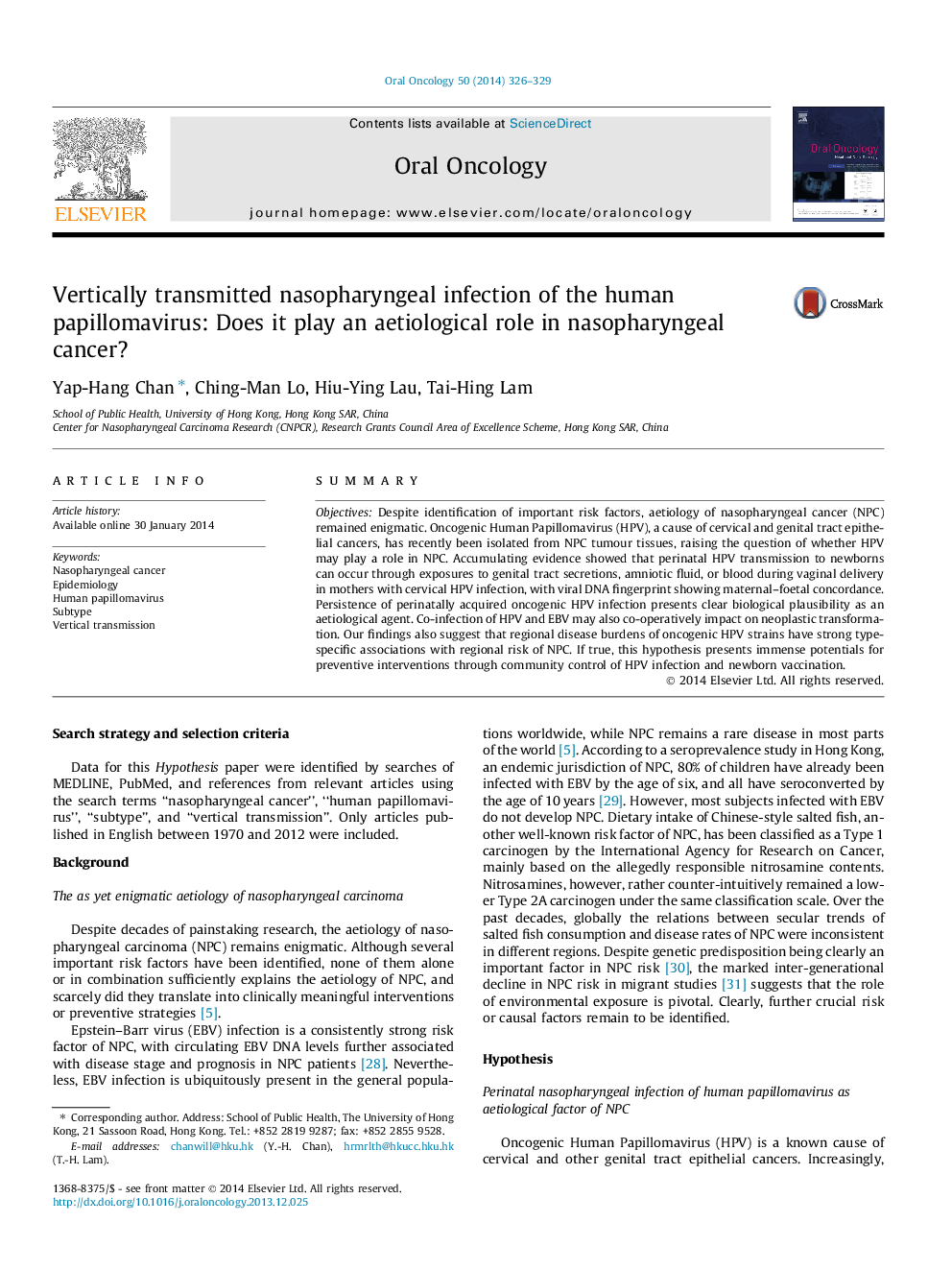| Article ID | Journal | Published Year | Pages | File Type |
|---|---|---|---|---|
| 3164234 | Oral Oncology | 2014 | 4 Pages |
SummaryObjectivesDespite identification of important risk factors, aetiology of nasopharyngeal cancer (NPC) remained enigmatic. Oncogenic Human Papillomavirus (HPV), a cause of cervical and genital tract epithelial cancers, has recently been isolated from NPC tumour tissues, raising the question of whether HPV may play a role in NPC. Accumulating evidence showed that perinatal HPV transmission to newborns can occur through exposures to genital tract secretions, amniotic fluid, or blood during vaginal delivery in mothers with cervical HPV infection, with viral DNA fingerprint showing maternal–foetal concordance. Persistence of perinatally acquired oncogenic HPV infection presents clear biological plausibility as an aetiological agent. Co-infection of HPV and EBV may also co-operatively impact on neoplastic transformation. Our findings also suggest that regional disease burdens of oncogenic HPV strains have strong type-specific associations with regional risk of NPC. If true, this hypothesis presents immense potentials for preventive interventions through community control of HPV infection and newborn vaccination.
